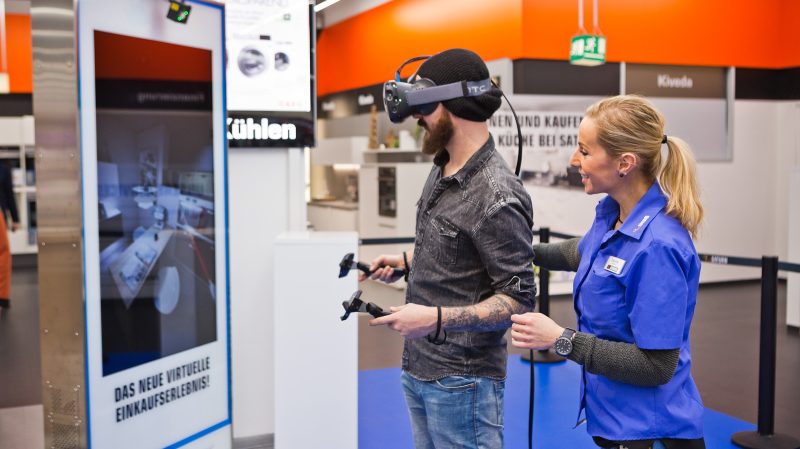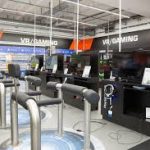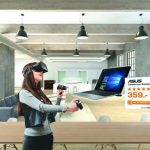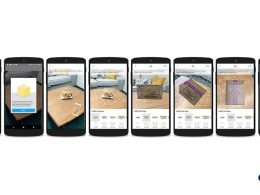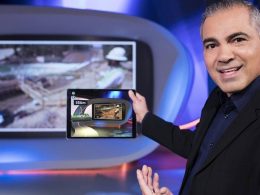Virtual reality is gaining momentum in the gaming sector - but is the technology also suitable for shopping? The electronics retailer Saturn is putting it to the test with a VR app.
According to reporters, the presentation of "Virtual Saturn" at a virtual reality centre in Munich was not quite as technically flawless as the makers would have liked.
"Virtual reality shopping today is more or less like online shopping in 1994," says Martin Wild, digital head of Mediamarktsaturn. Wild, who as the founder of Home of Hardware is himself one of the e-commerce pioneers, is referring to the technical status on the one hand and the market relevance on the other, due to the still rather limited distribution of VR devices among consumers. Nevertheless, Mediamarktsaturn decided to be one of the first retailers in the world to start with a VR shopping app: in online shopping, they were one of the last with their late entry in 2012. In the future, they want to be among the first in all shopping innovations and are pioneers in VR shopping, Wild explains.
Virtual purchase transactions are not yet possible
In two virtual environments - a loft and a space station - "Virtual Saturn" allows users to freely place electrical appliances in the room, examine them from all sides and call up product information and advice. If, for example, you want to ask your partner whether the TV you have chosen really fits well in the living room, you can take pictures in virtual reality and send them by e-mail. In a later version, it will also be possible to shop together at "Virtual Saturn" using the multi-user function. With gimmicks such as a weightless mode that lets products float through space, the VR shopping app also offers gamification elements that pay tribute to the pioneering role of the gaming scene in the spread of VR.
There are still some hurdles to overcome
Especially for VR newcomers, what Mediamarktsaturn has launched together with the tech start-up Innoactive is impressive. The number of available products, which have been elaborately digitised in 360 degrees for "Virtual Saturn", is only a few hundred, the control of the VR shopping app with controllers in both hands takes some getting used to and purchase transactions are not yet possible in virtual reality, but have to be made on the associated PC or via a sent link.
Pioneering spirit - turnover is not primarily decisive
Saturn will therefore probably not generate huge sales with the VR shopping app for the time being. For Mediamarktsaturn's head of digital, Wild, that's not all that important: "We want to make it possible for our customers to experience the technology of the future. To this end, "Virtual Saturn" will go on a nationwide tour of 20 Saturn stores at the turn of the year. In addition, the aim is to set up a VR platform that is open to future developments. In addition to the multi-user mode, Wild is also thinking about sensory or haptic perception possibilities, which should be technically feasible in a few years. Even more important, however, is customer acceptance, which ultimately decides the future of VR technology in retail.
Source: Saturn/ Interworld





